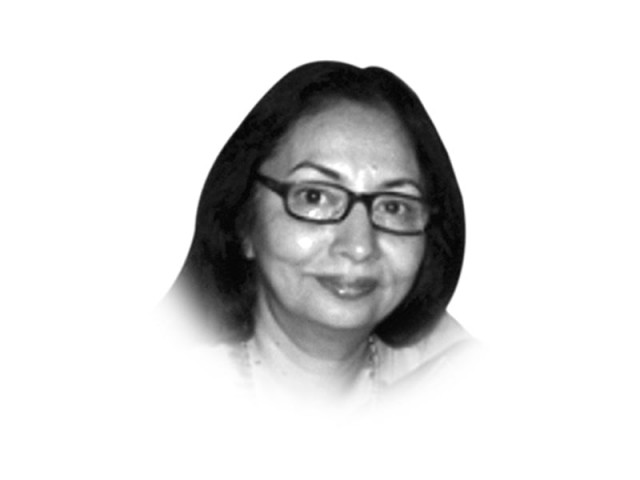So, what makes Karachi special?
A number of “special” things crossed my mind. But soon, the “specials” were taken over by the “horrids”...

The writer is author of the book Karachiwala: a subcontinent within a city and co-founder of NuktaArt, a biannual art magazine
I proudly informed the newcomer that Karachi was once called “the city of lights”. Lately, however, there have been regular and acute power shortages throughout the country, because of which, the city cannot afford to have its street lights on all night. All public and private buildings, as well as residences, conserve energy, as an expression of our civic sense, I told her.
She brought out her camera at the sight of a bus. I jumped at this chance to explain to her our unique “art on wheels”, hoping that she wouldn’t notice the number of people hanging onto the bus like honey bees swarming around a hive. I definitely didn’t want her to notice those 50 odd men squeezed onto the luggage rack on the vehicle’s roof. But she did notice when an entire fleet of buses passed by, right in front of us that very minute. After clicking her camera to her heart’s content, she turned to me.
I sensed that she was going to ask some difficult and sensitive questions regarding our public infrastructure: mass transit, poverty, safety aspects, mortality rate, etc. Instead, she got distracted by the next sight, a donkey cart dragging some 20-foot long steel bars that were scratching the asphalt as the poor donkey struggled on. She pointed to the red and black flag-like rags tied to the bars and somewhat bewildered, asked if these really acted as deterrents for vehicles following the cart.
“Yes, of course!” I was quick to respond, and went on to say that we were quite conscious of the hazards such cargo posed, and therefore, took full precautions. But before she could comprehend whether my reply was in earnest or jest, she saw something else that made her jaw drop. “One, two, three, four, five … ” she was counting the number of adults and children on a motorbike passing by.
She was quiet for a few minutes as she observed the city from the comfort of the air-conditioned car. As we stopped at a traffic signal, our car was surrounded by half a dozen people. She was a little disturbed by the tapping and knocking on the glass. “Beggars?” she turned to me. “Oh no, they are just vendors trying to sell stuff. We are a dynamic people. Everyone works,” I said, as if in their defence. “Even children?”, she asked, with a note of contempt, bordering on pity.
She continued asking questions throughout our ride: “It seems like everyone around here carries a gun. Do you also own one? Why are there such few women pedestrians? Why are there so many tree stumps on this road? Why are there so many unfinished buildings along all the roads? Are they going to be completed soon? Do you have a construction boom in Karachi?”
“Well yes, you are right. At about 20 million, Karachi is the fastest growing city in the world!” I said. I wasn’t sure if this was my justification for the visual chaos we were witnessing, or an excuse for our failure to manage the city better. But this is my city, my “special” Karachi.
Published in The Express Tribune, July 17th, 2013.
Like Opinion & Editorial on Facebook, follow @ETOpEd on Twitter to receive all updates on all our daily pieces.















COMMENTS
Comments are moderated and generally will be posted if they are on-topic and not abusive.
For more information, please see our Comments FAQ